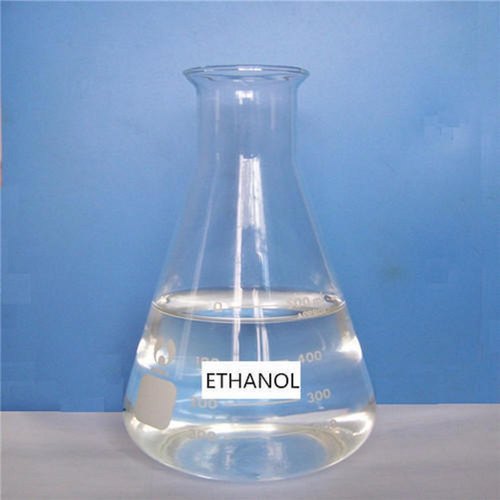The ethanol manufacturing industry generated more than $34.7 billion in U.S. gross domestic product in 2020. That market boom occurred because ethanol is a widely used product in hospitals, the food and beverage industry, and the cosmetic industry.
But what is this solvent that industries fight over? How many forms does it exist in, and how can it help you?
In this article, you’ll learn that alcohol is more than a beverage to help you unwind. Read on.
Table of Contents
What is Pure Ethanol?
Ethanol or ethyl alcohol is a colorless, highly volatile liquid with a boiling point of 78 degrees Celsius. You probably know the solvent as the intoxicating agent used to manufacture wines, spirits, vodka, and whiskey.
Sadly, the government imposes taxes and regulations on the product to reduce its abuse. But did you know that there’s adulterated ethanol without those restrictions?
What are the Differences Between Pure and Denatured Alcohol?
Pure ethanol
Pure or Non-denatured alcohol has a concentration of 95% with no added solvents or additives. But the product is expensive, requires permits and on top of that, you’ll have to pay heavy taxes.
Do you need to buy pure ethanol for your hospital, clinic, government laboratory, or university? Then you’ll benefit from tax-free ethanol with 99.6% alcohol.
To illustrate, as a student, you might use the solvent for organic chemical reactions. And as a hospital, you can compound prescriptions or run your medical analysis.
Denatured alcohol
Completely denatured alcohol has 5% methanol, acetone, isopropyl alcohol, and other additives that make the product unfit for human consumption. Because of that adjustment, you don’t need a permit to use the solvent or pay any taxes.
This advantage comes from the fact that you can’t separate the additives from the alcohol to use it as a recreational beverage.
The product is efficient for scientific experiments and specimen preservation in educational facilities. Also, manufacturers of cosmetics, detergents, perfumes, pharmaceuticals, printing inks, polymer solutions, and vaccines use the solvent to preserve and purify their products.
What are the Benefits of Pure Ethanol?
The solvent is popular in the manufacturing, food, and medical industries. People, therefore, use alcohol in oil extraction processes, as a tissue specimen preservative, or as a reagent in many chemical experiments in schools.
Manufacture of Food Products
Many companies use pure alcohol as an agent in culinary extracts, essential oils, tinctures, and tobacco flavor manufacturing. The reason behind that utility is that ethanol is a polar liquid.
That characteristic means that the solvent has an impeccable ability to extract oil and water-soluble components such as chlorophyll and terpenes.
In that case, manufacturers use ethanol for cold processing to preserve delicate plant compounds and winterization. Other benefits include saving costs because alcohol is recyclable. And the pure solvent leaves no residues once evaporated from your raw material.
Manufacture of Personal Care Products
Ethanol effectively disinfects organisms such as fungi, viruses, and bacteria. The solvent works by penetrating the germs’ cell wall, denaturing proteins, and causing them to break down in structure and function. And due to that benefit, you’ll find the liquid in hand sanitizers.
Alcohol is a preservative in lotions, ensuring the cosmetic ingredients don’t separate. Moreover, you’ll get astringent products that help remove excess skin oil and remove left-over makeup.
Manufacture of Carpentry Products
People mix pure ethanol with water to make lacquers, varnish, and paints. Therefore, you’ll get shiny, glossy finishes on your wood surfaces.
Manufacture of Gasoline
Some cars use an ethanol-gasoline mixture called E-10 as their fuel source. The vehicle models using E10 include Honda, Mitsubishi, Suzuki, and many others.
The solvent helps maintain drivability by providing anti-knocking properties. Moreover, you get to reduce air pollution compared to other fuel types.
Safety Precautions
Pure ethanol is flammable and mildly toxic. Also, the solvent’s vapor can fill a room, ignite and cause an explosion. Therefore, you should store the product in a cold, well-ventilated room.
Avoid ethanol poisoning by handling it with protective clothing such as gloves and goggles. Also, remember to cap your storage cylinder tightly as the alcohol is highly hygroscopic.
Conclusion
Pure ethanol is a universal solvent with various applications in the science and industrial fields. For example, scientists use the solvent for chemical and biochemical experiments.
Oil extraction industries utilize alcohol due to its ability to dissolve terpenes, alkaloids, and chlorophyll. And the beauty industry uses pure ethanol to preserve lotions and manufacture skin care products.
Be vigilant of the solvent you’re buying depending on how you intend to use it because denatured alcohol differs from pure ethanol in that you can’t consume it.
About the author: We offer top-quality cannabis content writing services for CBD companies in the US. With over 14 years of SEO experience, Nikolay Stoyanov and his team will help
















